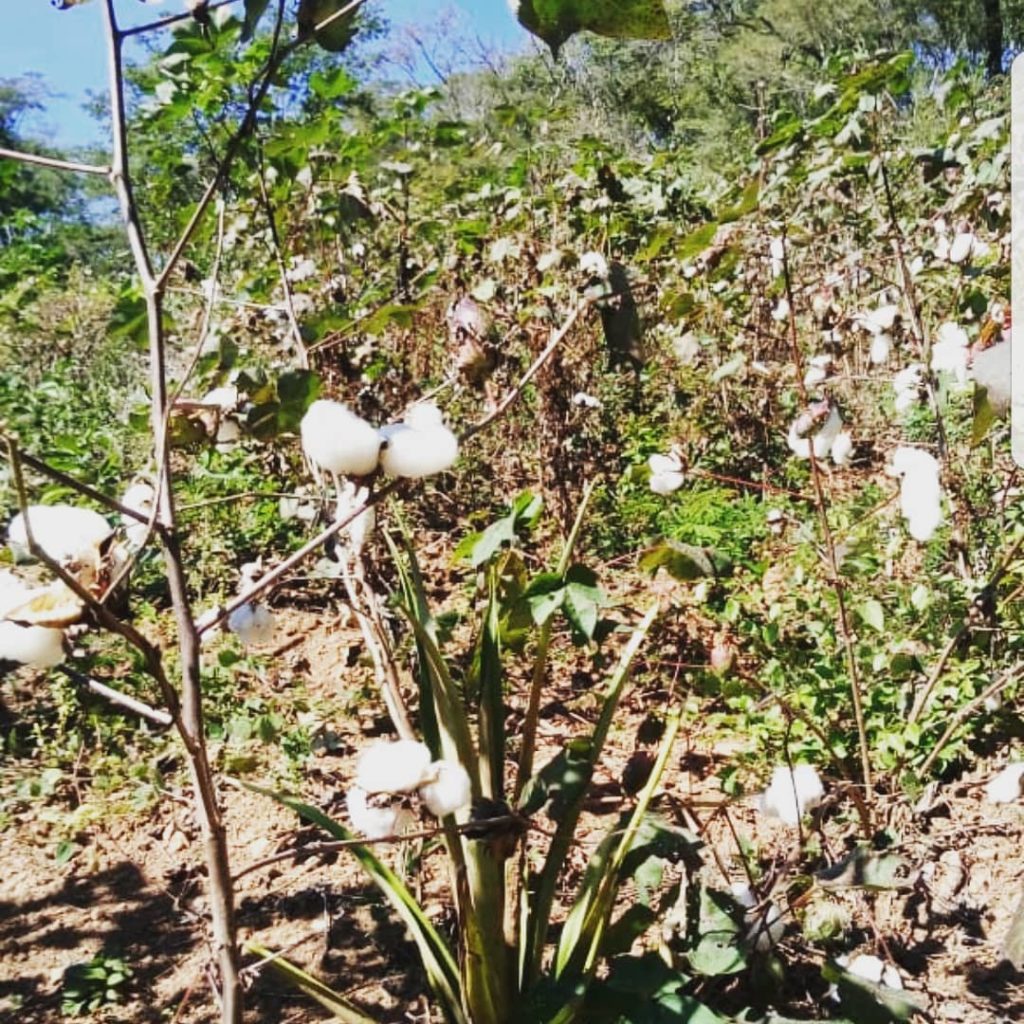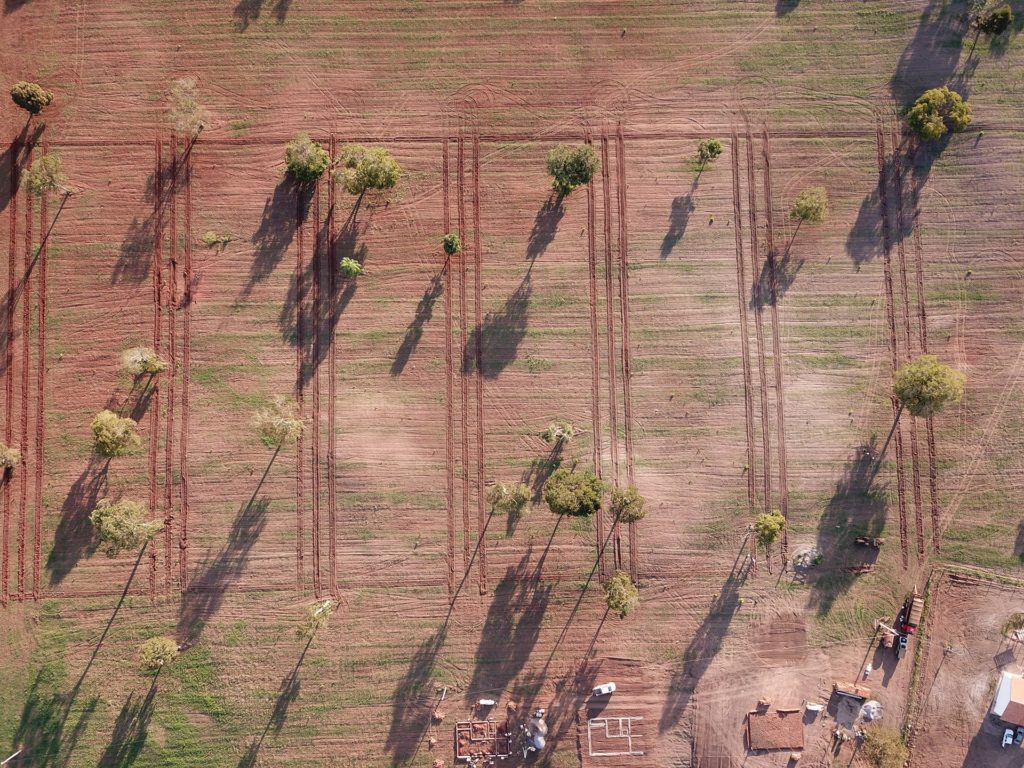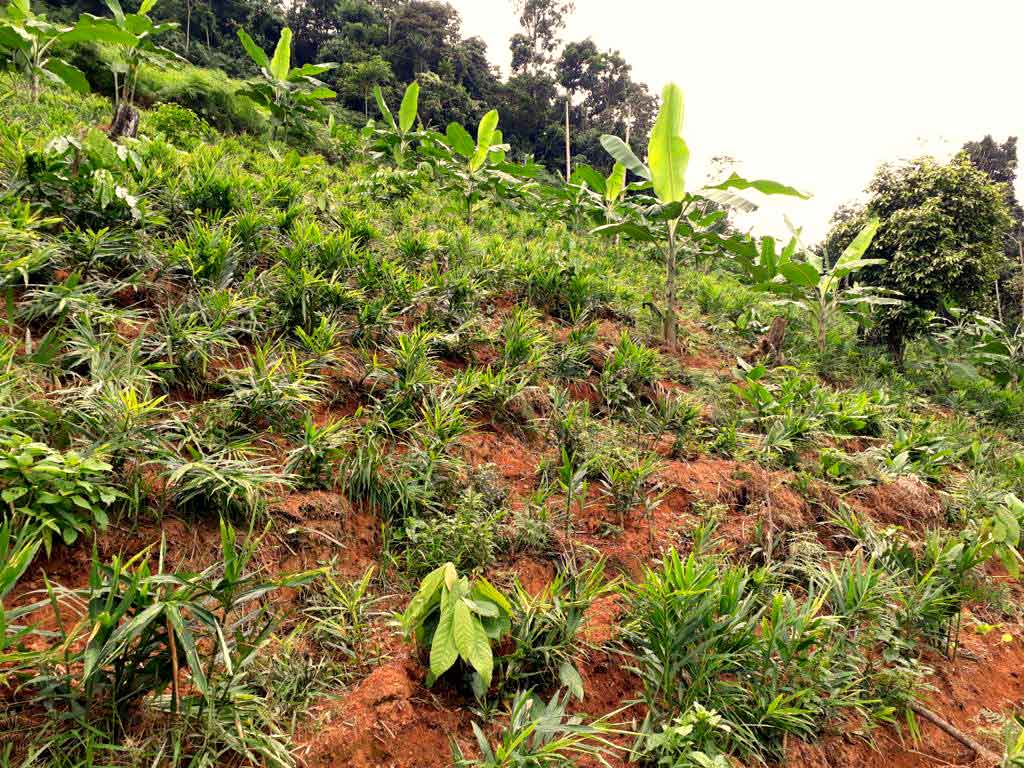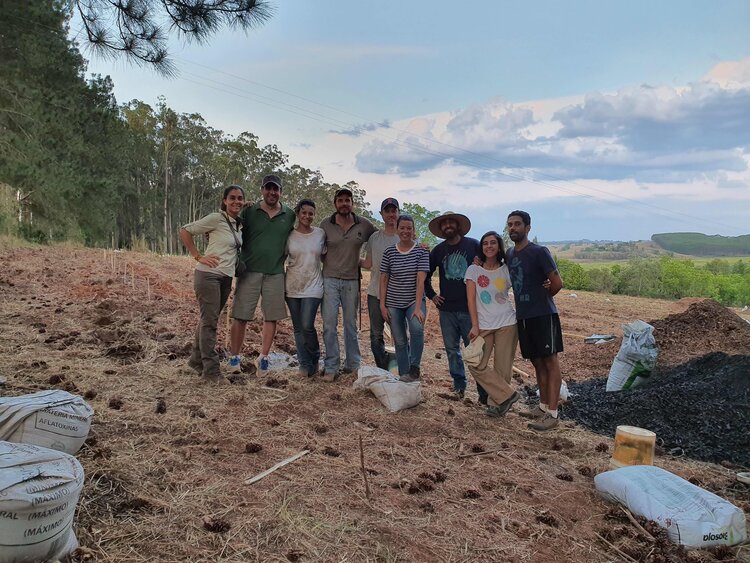Photo: Farfarm
In 2019, PRETATERRA entered into a partnership with FARFARM, a Brazilian company specialized in supply chain regenerative. Funded by one of the largest textile companies in the market, the The project consisted of an agroforestry system focused on the production of organic cotton, supported by other secondary species of ecological and economic value.
FARFARM's mission seeks to transform the textile industry in Brazil. Through agroforestry, it establishes virtuous production chains to supply the textile market with genuinely ecological raw materials, supporting small producers and, therefore, generating low socio-environmental impact.
Based on this mission, PRETATERRA started a diagnosis of the FARFARM property that received our project, located in the municipality of Montes Claros (MG). We started from a careful analysis of the local soil and climate conditions to establish a project suited to the opportunities and realities of the region, bearing in mind the need to focus on a single commodity: organic cotton.
PRETATERRA prepared the agroforestry design of the property, creating an integrated system with forest lines, in addition to a detailed guide for the planting and management of the chosen species. We designed a biodiverse system, with 16 selected species, including fruit trees (coconut, papaya, pineapple), green manure plants (pigeon pea), wood species (such as angico and true mastic) and, of course, cotton, a key species in the design. . In this case, we planned a productivity of 150-160 kg of plume/ha, a numerical projection that served as a criterion and basis for the establishment of the rest of the system.
The final project presents the presence of secondary service and forage species whose objective is to guarantee the production of biomass and soil cover, in addition to serving as food for cattle. One of the challenges was to identify the species adapted to the region's semi-arid climate, a survey carried out in partnership with local farmers.
Following the essence of all PRETATERRA projects, it is a modular project (cut into modules) and fully replicable. It can be adapted to farming families (FARFARM partners) who live on properties in the region and who will absorb, adapt and benefit directly from this design.
Beto Bina, co-founder of FARFARM, reports that the solutions found by the PRETATERRA project propose "guidelines to minimize risk, but with flexibility to use the available resources of each community and family”.
It is worth mentioning that the choice of cotton as the flagship has a very clear reason. Cotton is one of the basic raw materials of the global fashion industry, a market that moves about US$2.5 billion annually. At the same time, it is a production chain with a high socio-environmental impact, highlighting the high consumption of water resources in production, pollution with chemical residues and, finally, greenhouse gas emissions (10% according to the World Bank).
Brazil has a role to play in this sector, as it is among the largest producers and exporters of this commodity (second only to the United States in this regard). In 2019, it recorded an increase of 35% in planted area and 32% in production compared to the previous year. Therefore, the organic cotton agroforestry project conceived with FARFARM has enormous potential to contribute to the construction of a logic and a regenerative economy around the textile industry and the fashion industry.




 agroforestry taken seriously
agroforestry taken seriously 